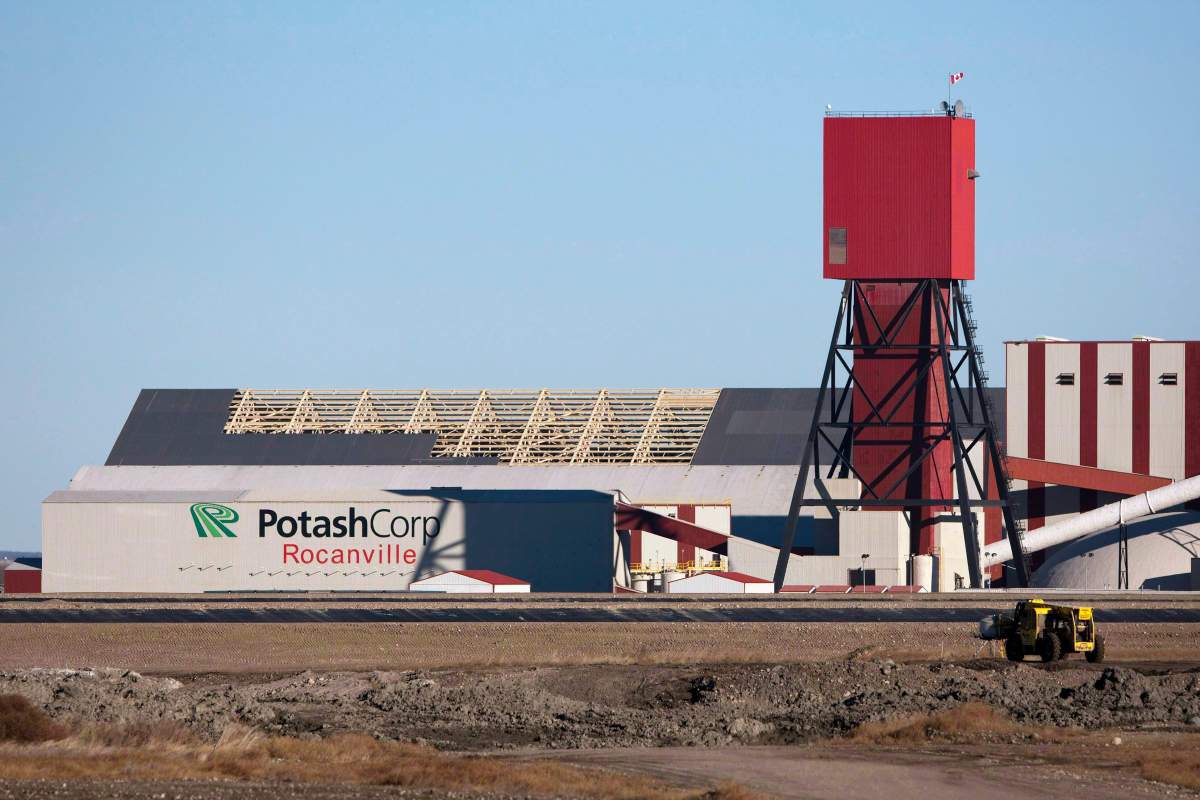Nutrien says it will have to stop production at its largest potash mine in Saskatchewan due to the CN Rail strike.

The Saskatoon-based fertilizer company said Monday production will be curtailed at its Rocanville operations for two weeks starting Dec. 2.
“It is extremely disappointing that in a year when the agricultural sector has been severely impacted by poor weather and trade disputes, the CN strike will add further hardship to the Canadian agriculture industry,” Chuck Magro, Nutrien’s president and CEO, said in a statement.
“Any further disruption will be harmful to our business, the Canadian economy, and Canada’s competitive position and reputation as a reliable supplier of fertilizer and food.”
“This creates great uncertainty and hardship leading up to the holiday season.”
Magro said most concerning for him is the impact on the company’s employees, who were informed Monday about the shutdown.
Roughly 3,200 members of Teamsters Canada walked off the job on Nov. 18 in a dispute over working conditions.

Get breaking National news
The union’s concerns center on fatigue, safety and ensuring that workers’ breaks are not reduced.
The railway has proposed binding arbitration, an option that the Teamsters Canadian Rail Conference union has rejected.
Federal Agriculture Minister Marie-Claude Bibeau said on Monday in Regina that there is no timeline on whether or not Ottawa will intervene in the Canadian National Railway strike, but all options, including back to work legislation, remain on the table.
“Every option is always on the table, but for the time being we hope that both parties will get to an agreement and that would be the fastest way as well,” Bibeau said.
The strike is resulting in different regional hardships, including difficulty getting grain to market in the Prairies and a shortfall of propane in Quebec and Atlantic Canada.
Saskatchewan Trade and Export Development Minister Jeremy Harrison said the province has received word this may be the beginning of layoffs related to the CN strike restricting market access.
“We’re aware that there are potentially further announcements coming. I’m not going to pre-announce what those are, but we’re hoping that doesn’t happen,” Harrison said.
The minister wouldn’t get into further details, other than saying the government is very worried about negative economic spin-off beyond what’s been seen at Nutrien.
- Daylight saving time 2026: Here’s when you should set your clocks forward
- Conservative MP searches for ‘antifa’ in federal government, Canadian Armed Forces
- Liberals survive confidence vote as House passes budget implementation bill
- Canadians stranded in Puerto Vallarta after violence disrupts flights home to Edmonton
While Harrison wouldn’t discuss specific industries, he said millions of bushels of crops are being held up due to the labour dispute, plus a portion of Saskatchewan’s daily oil exports — 45,000 barrels.
“This is absolutely essential for our economy. We are very dependent on rail transportation,” Harrison said.
On Tuesday, Harrison said Premier Scott Moe will be calling on the federal government to take a leadership role in trying to get the two sides back to the bargaining table when he meets with the deputy prime minister.

—With files from David Baxter and Reuters






Comments
Want to discuss? Please read our Commenting Policy first.